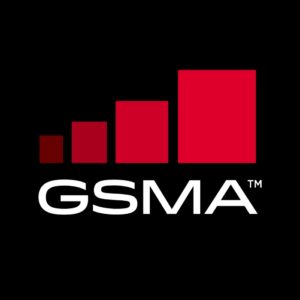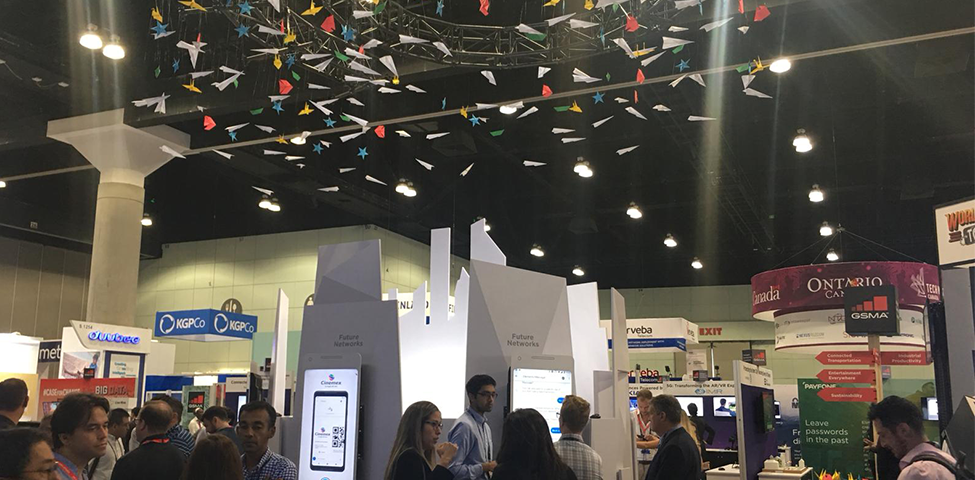RCS takes centre stage at in Los Angeles as momentum builds behind business applications
At 25 years old and still going strong, SMS is the world’s most successful messaging platform, used today by more than 5 billion people worldwide. As with any longstanding technology, however, its inherent limitations make wholesale update an inevitability. That update is here, in the form of Rich Communication Services, or ‘RCS’. What SMS offers in terms of global reach and low cost, it lacks in more contemporary features, such as interactive multimedia and branding, or the analytics now used to tailor marketing campaigns.
This is where RCS comes in. Users can now enjoy a more multisensory messaging experience – with images, videos and GIFs – while chatting with their friends in groups, or engaging with brands whose identities they can be sure of. Consumers can make many of their everyday transactions such as booking a restaurant table, planning a trip or buying clothes in a sophisticated, user-friendly and native interface – without needing to download and switch between separate apps for each enterprise. Those enterprises can then see far reduced attrition through that lower friction, while enjoying far greater scope to brand themselves in creative visual ways, and track user engagement in detail. In the case of issues or queries, AI-enabled chatbots are there to help, keeping customers taken care of and costs down. At a time when 25% of downloaded apps are literally never used, and further 25% used only once before being abandoned, this presents a game-changing combination of attractiveness, convenience and marketability.
RCS is therefore quickly coming into view as the world’s premier channel for conversational commerce. 62 operators have made commercial launches so far, bringing monthly active users to around 174 million already. This is forecast to more than double by the close of 2018, doubling again over the course of the following year. RCS took centre stage at the Mobile World Congress Americas in Los Angeles last month, with particularly keen interest in RCS Business Messaging – more events were held on the commercial potential of RCS in Los Angeles this year than in any previously by some distance. RCS is a work in progress; a great deal has been achieved, but as a new solution there is work to be done over the coming months while it is trialled and adapted for the mass market. Key players in the industry therefore regularly meet to share thoughts and coordinate work through the GSMA’s RCS Business Messaging Labs: attendees help to shape a burgeoning market valued at up to $90 billion by 2021, through mutual deliberation and peerless opportunities to network at the very top of this field. Further discussions took place at our parallel RCS Business Messaging Seminar and roundtables such as last month’s instalment on Conversational Commerce.
The fourteenth RCS Business Messaging Lab in Los Angeles, which was sponsored by 3Cinteractive, brought together leading operators and brands for more than four hours of discussion on the course ahead. AT&T and Vodafone joined players from Google and Samsung to Subway and Walgreens to share progress, much of which was highly encouraging. Subway’s RCS campaign, for instance, has already attracted more than 5 million subscribers, with an 85% retention rate – and, most importantly, a 140% higher conversion rate than SMS. Customers can now view, customise and order their sandwiches in advance of arrival negating the need to queue or wait around in store, leaving more of their lunchbreak to be spent actually relaxing. Vodafone’s RCS services are live in three major economies – Italy, Spain and the UK – and are deployed in contexts as various as management of train journeys to attracting reengagement by donors to charities. Click-through rates in Italy are already seven times that of comparable SMS campaigns; in Spain that number is a striking fourteen times, with activation rate of up to eight times higher than with SMS.
The anticipation generated by these early successes was palpable at our Business Messaging Seminar the following day. Oscar Gallego, Vodafone’s Global Head of Smart Communications and Security, was clear that RCS has proved itself, saying that “the levels of customer engagement measured during our RCS Business Messaging commercial campaigns across the UK and Italy have confirmed the value and endless possibilities that RCS can bring to brands, messaging partners and mobile operators.” There was agreement from Express, who in partnership with 3Cinteractive have become the first retailer in the US to offer RCS services to clothing retail customers: “Based on high engagement rates and almost no opt outs – customers seem eager to use messaging for commerce and we’re thrilled to offer it.” Subway too were effusive on the gains made over previous telemarketing efforts, explaining that they “can now deliver the experiences we’ve strived for in mobile with RCS. Marketers can now have a trusted 2-way conversation with images and rich media which has delivered a conversion lift of 140% over traditional SMS.”
The pace at which these milestone gains are being made was underscored at our inaugural AI and Conversational Commerce Roundtable, which brought together technical experts, operators and vertical partners for deep-dive discussions on the roadmap for RCS going forward. Top of the agenda was expansion of the role played by assistive AI chatbots, how developers and brands can be supported to collaborate effectively, and development of API specifications to ensure best practice. Accomplishments are numerous and swift in RCS, but there is no room for complacency: the industry must maintain regular collaboration to ensure the commercial potential here is realised in full.
Thankfully, the signs indicate that all concerned are of the same mind on this last point. The GSMA’s Innovation City in Los Angeles this year was proof positive of the momentum already being built behind commercial applications of RCS, with major brands as various as ITV, Boston Pizza and Booking.com in attendance to showcase what they have achieved so far.[1] The appetite for RCS is as easy to understand as it is plain to see – the limitations among alternative channels in digital marketing are clear. Business Development Manager at Google Alexandre Allemand laid out the stark realities during the last Business Messaging Lab: email campaigns yield a mere 0.12% response rate on average, not least because users now receive around 18 spam messages each per day; the average cost of a live agent phone call is currently $4.50, and a mere 3% of users report satisfaction with automated voice systems; and an overall majority of mobile users now are sufficiently weary of downloading apps that they haven’t done so in at least a month. RCS demonstrably sidesteps all of these pitfalls, and does so through a native platform which consumer devices will increasingly be shipped with as standard. The opportunities for operators and their partners are therefore difficult to overstate, and space at our upcoming events will fill swiftly; view details for our next Business Messaging Labs in London, Moscow, New Jersey and Buenos Aires here to secure your place.
Resources from MWC Americas
- Click here to download the full recording and the speakers’ presentation from the RCS Business Messaging Seminar
- Click here to download the speaker’s presentations from the 14th GSMA RCS Business Messaging Lab
[1] The full range of brands at the Innovation City was: ADP, Banamex, Booking.com, Boston Pizza, Cabify, Chicago Transit, Cinemex, Elements Massage, Express, Farm Journal Mobile, Overstock, Paris St Germain, RedBox, Sacramento Kings, Subway and Zerorez.

